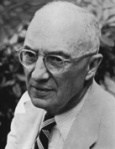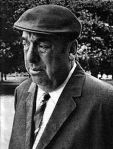 Denise Chávez’s 2001 Loving Pedro Infante is one of those books that becomes your friend.
Denise Chávez’s 2001 Loving Pedro Infante is one of those books that becomes your friend.
Tere Avila is an “educational assistant” – teacher’s aide – in Cabritoville, near El Paso. She’s a divorced, 30-something woman who spends her time hanging out with her best friend, Irma, at Tino’s La Tempestad Lounge every Friday and Saturday night and serving as secretary in the Pedro Infante Fan Club, whose members watch the Mexican actor’s old movies from the 1940s and 1950s and analyze them as though they were in an English literature class.
Tere’s ordinary, somewhat lonely, life gets a jolt when she starts an affair with Lucio Valadez, a married man whose daughter attends the school she works at.
Sounds like an ordinary plot, right? But what makes Pedro Infante so wonderful is Chávez’s writing. Tere speaks to the reader in first person, and the conversational tone makes you sympathize with her, laugh with her and, at times, want to scold her. (Fortunately, Irma does that for us.) Think of it as a Mexican version of Bridget Jones’s Diary or a small town Sex and the City.
The minutes from the Pedro Infante Fan Club meetings are particularly hilarious, but here’s some of the better lines:
On her love for Lucio: “There’s nothing a Mejicano or Mejicana loves more than the burning, stinging pain of thwarted, frustrated, hopeless, soulful, take-it-to-the-grave love. Nothing gets us going more than what I call rabia/love of the te-juro-you’re-going-to-pay-for-all-the-suffering-you-caused-me variety.”
On visiting a curandera’s house in a poor neighborhood: “Doña Meche was one of the richest women in Cabritoville. … She loved to invest in the stock market. Oh yeah? Well, invest in your neighborhood, and your yard, girl!”
On a visit to the bathroom with Irma: “I could hear Irma’s spurty but intense urine stream. She was a fast pisser and in this session she outdid herself. I could barely keep up with her, and I flushed early to make a number of deep growly farts.”
I absolutely loved Loving Pedro Infante. Please stop what you’re doing and go read it now.
 More about Denise Chávez:
More about Denise Chávez:
• A native of New Mexico, Denise Chávez has also written A Taco Testimony: Meditations on Family, Food and Culture, Face of An Angel and The Last of the Menu Girls. She is the director of The Border Book Festival, which will take place Thursday-Sunday in Mesilla, New Mexico.
Source: I checked this book out of the library.
This book is fourth in the series of classic books by Latina authors. Next month: Laura Esquivel’s Like Water for Chocolate.
 Chilean Roberto Bolaño was born on this day in 1953 and died in 2003. His works, with their dark, sometimes twisted themes, have become more popular after his death.
Chilean Roberto Bolaño was born on this day in 1953 and died in 2003. His works, with their dark, sometimes twisted themes, have become more popular after his death.





















